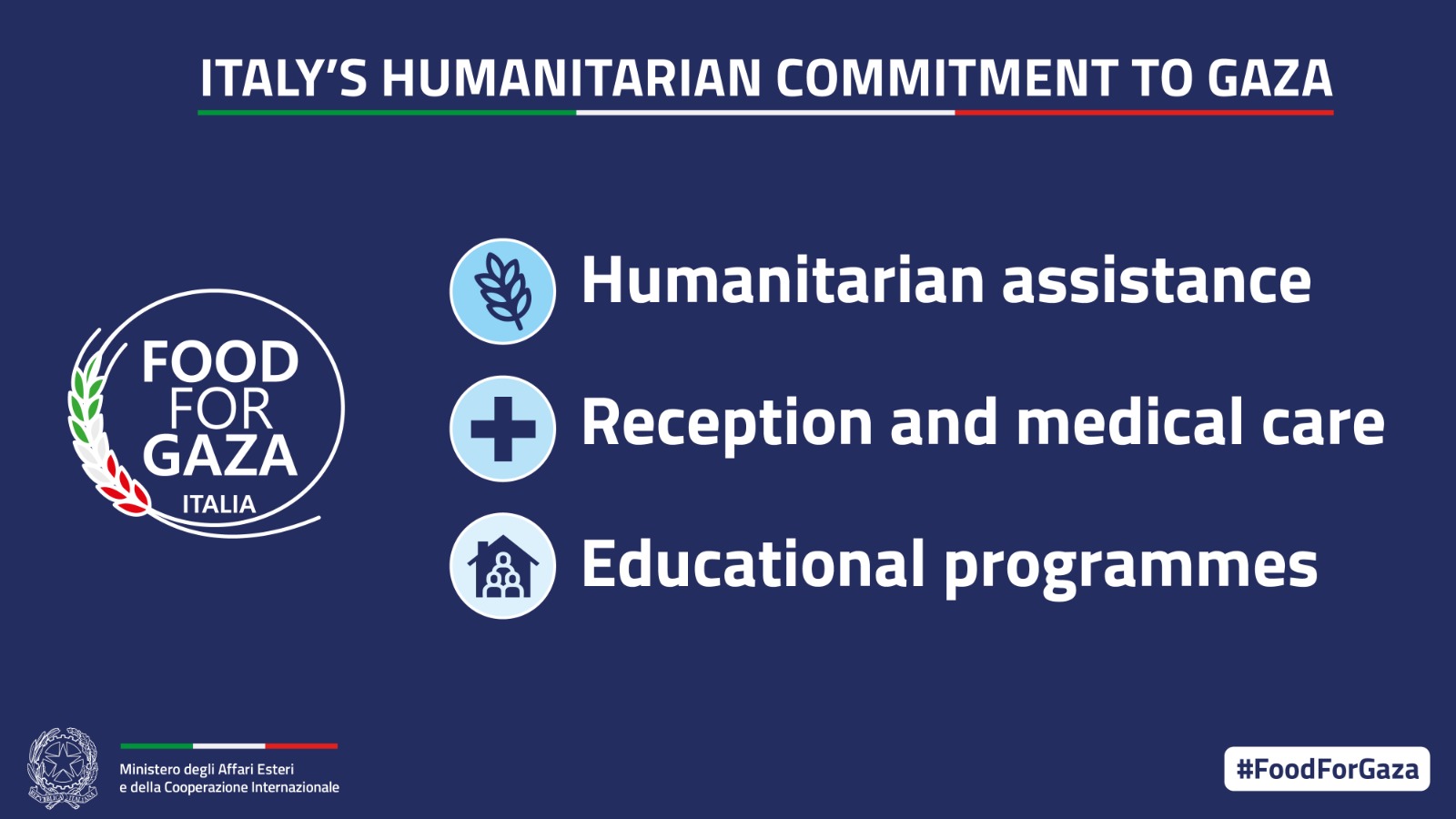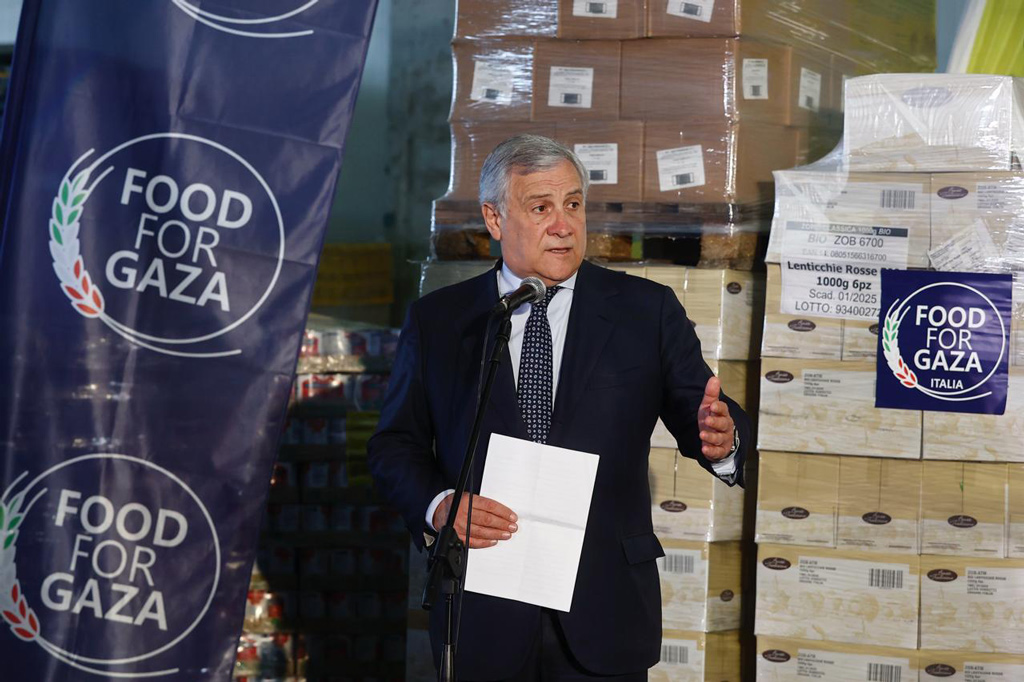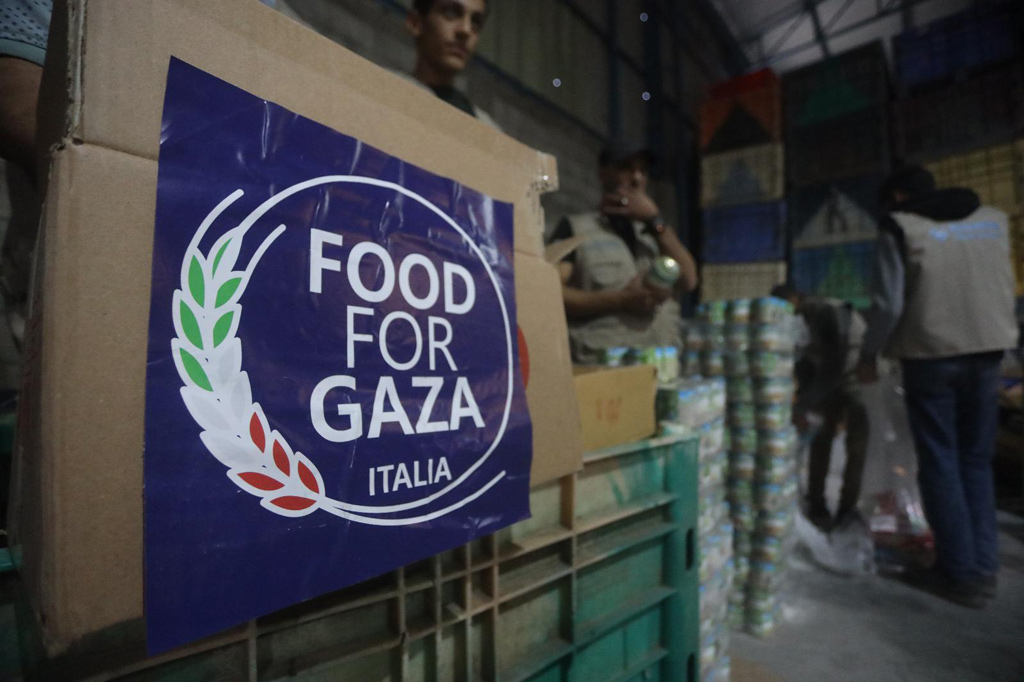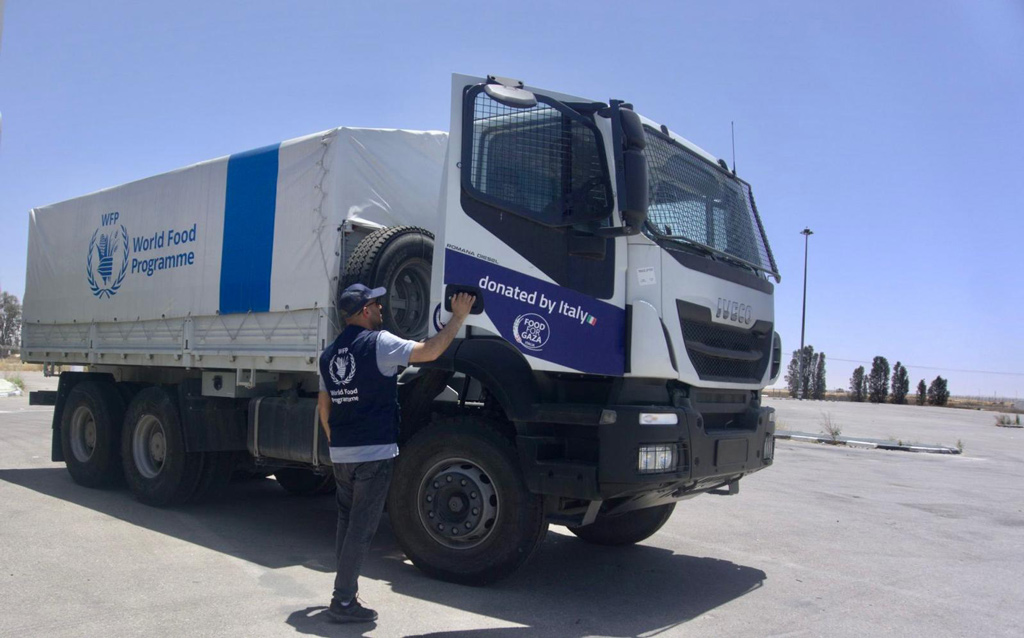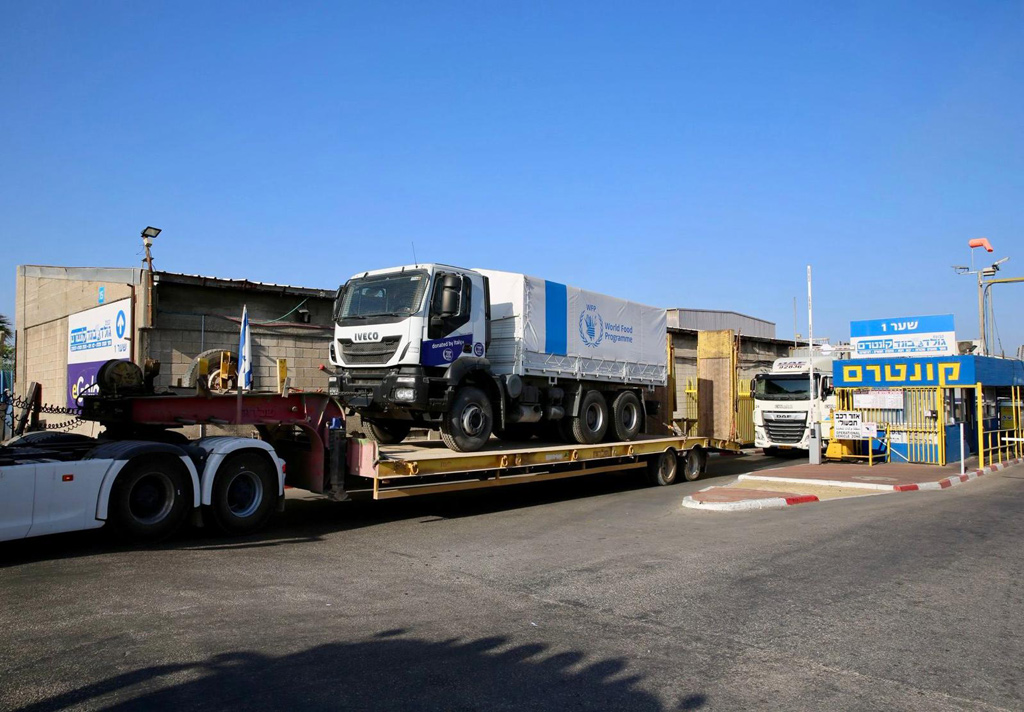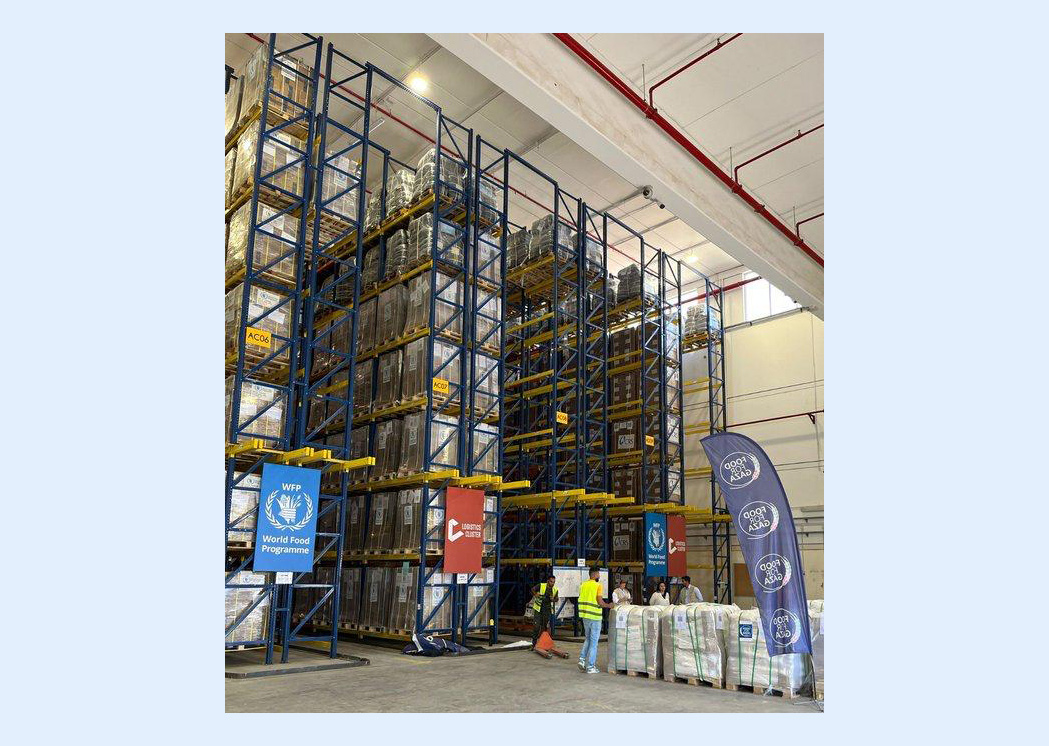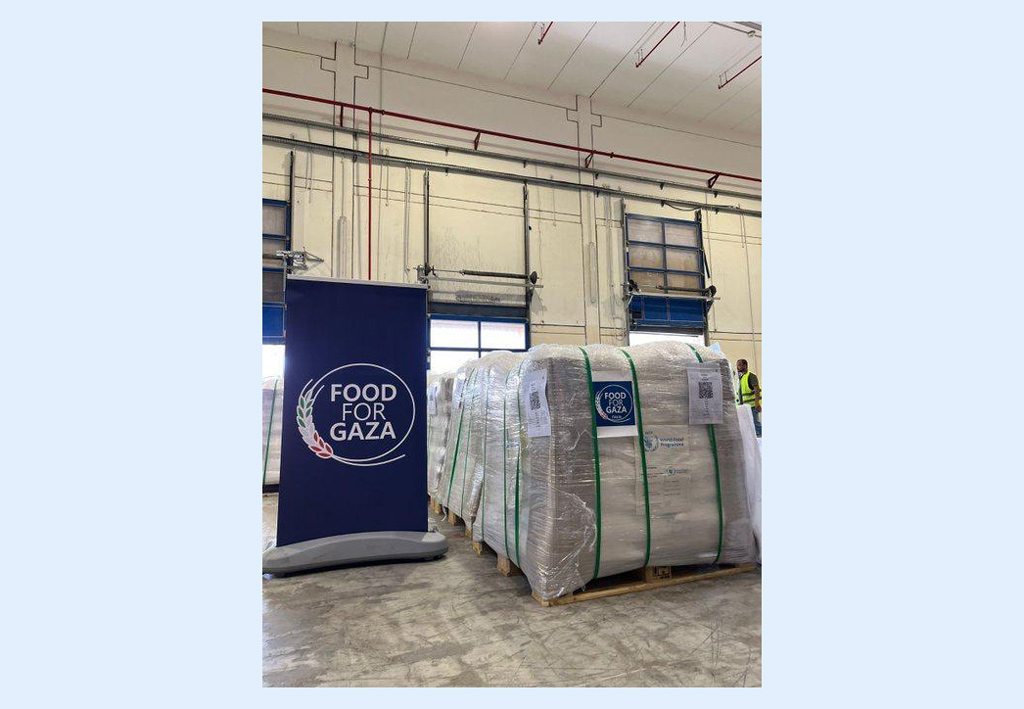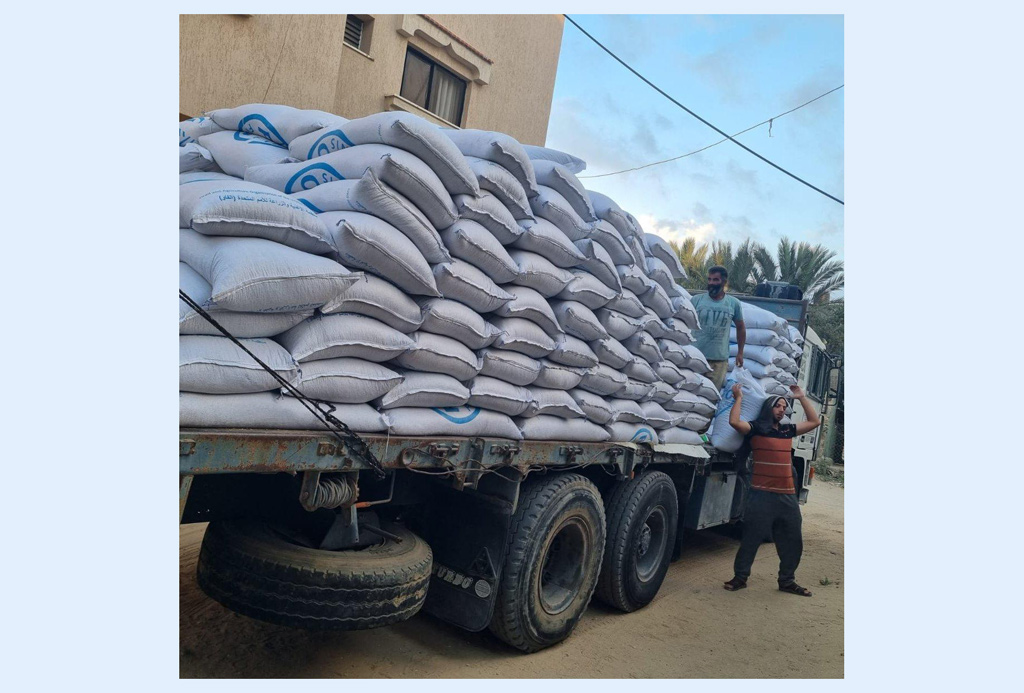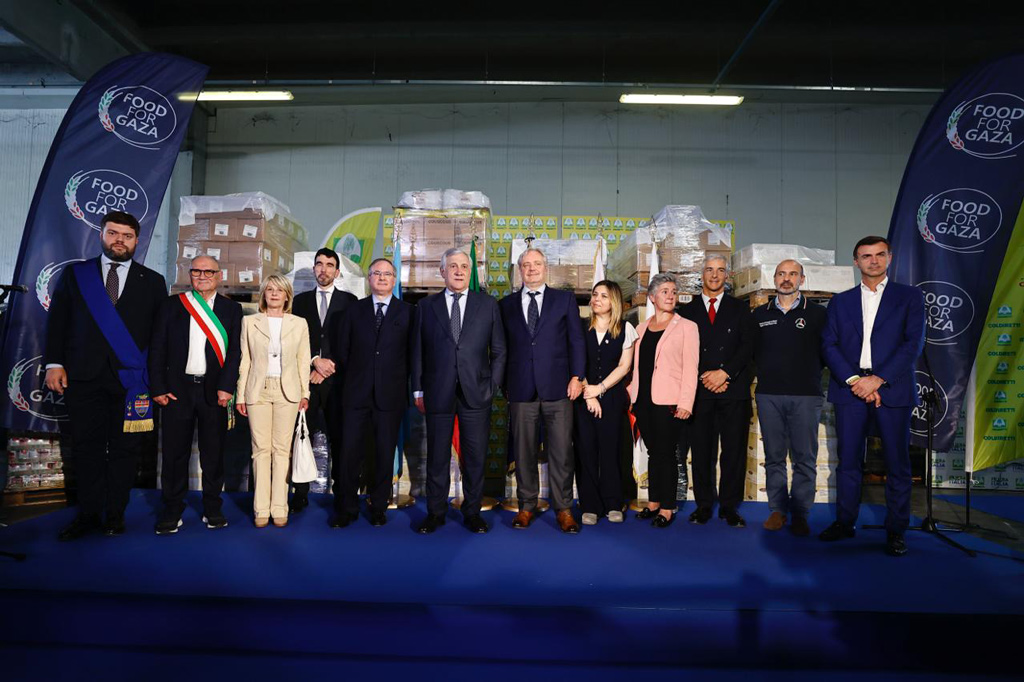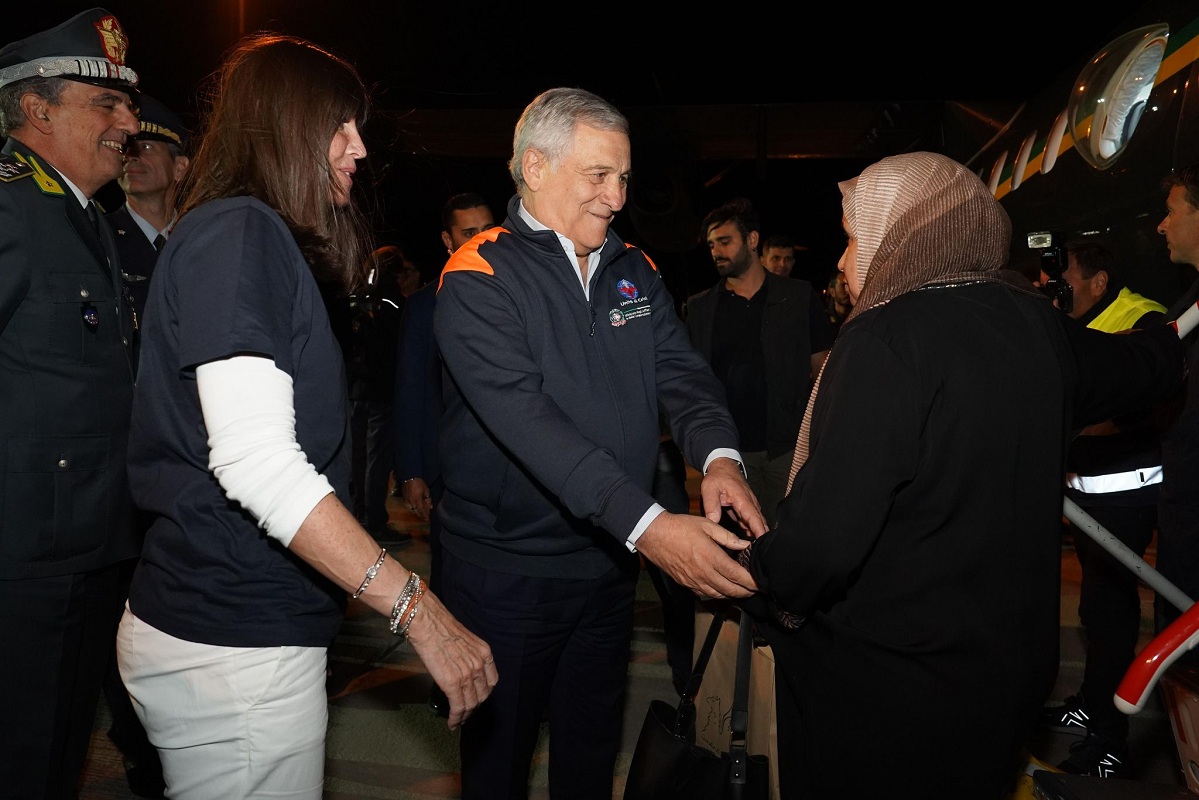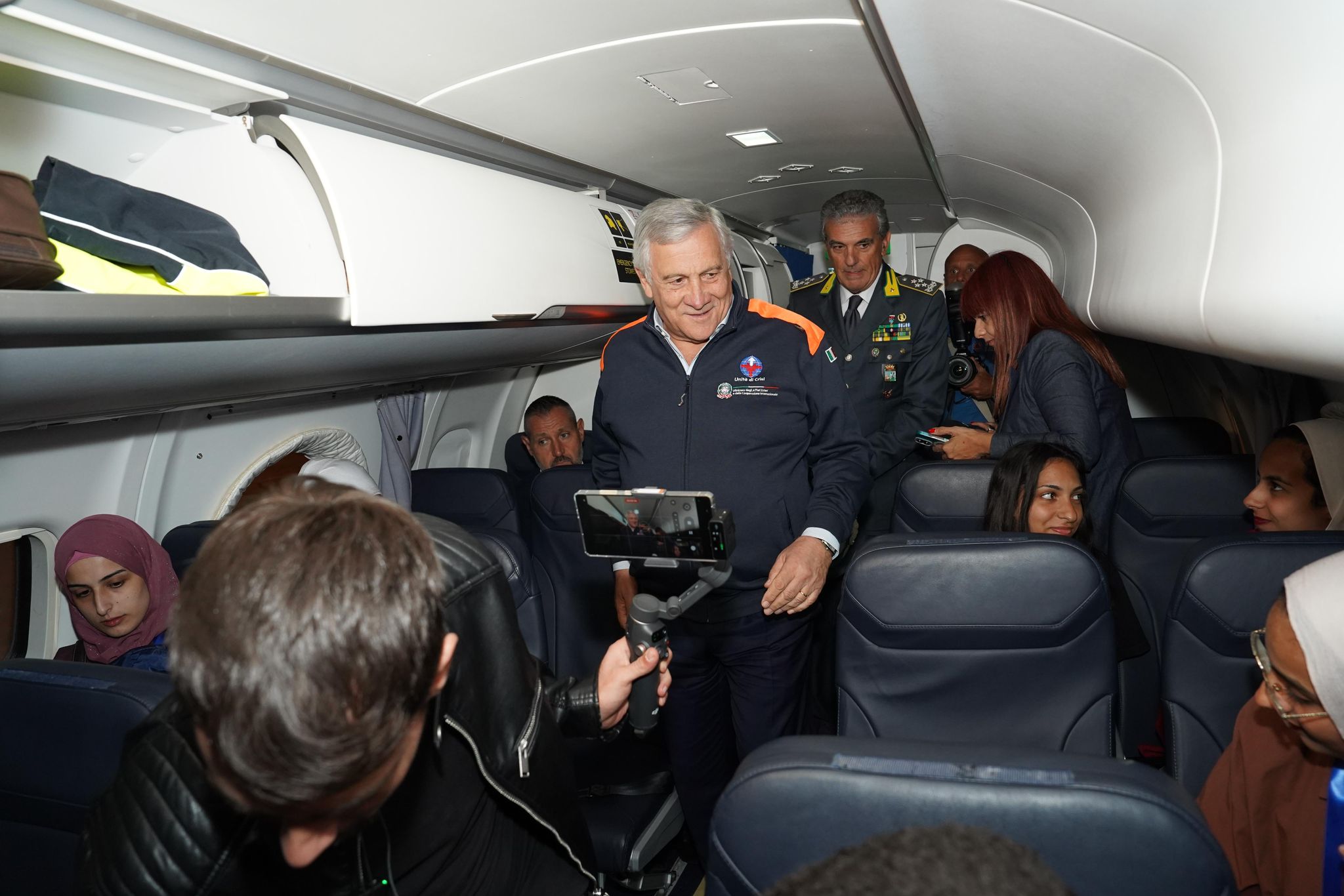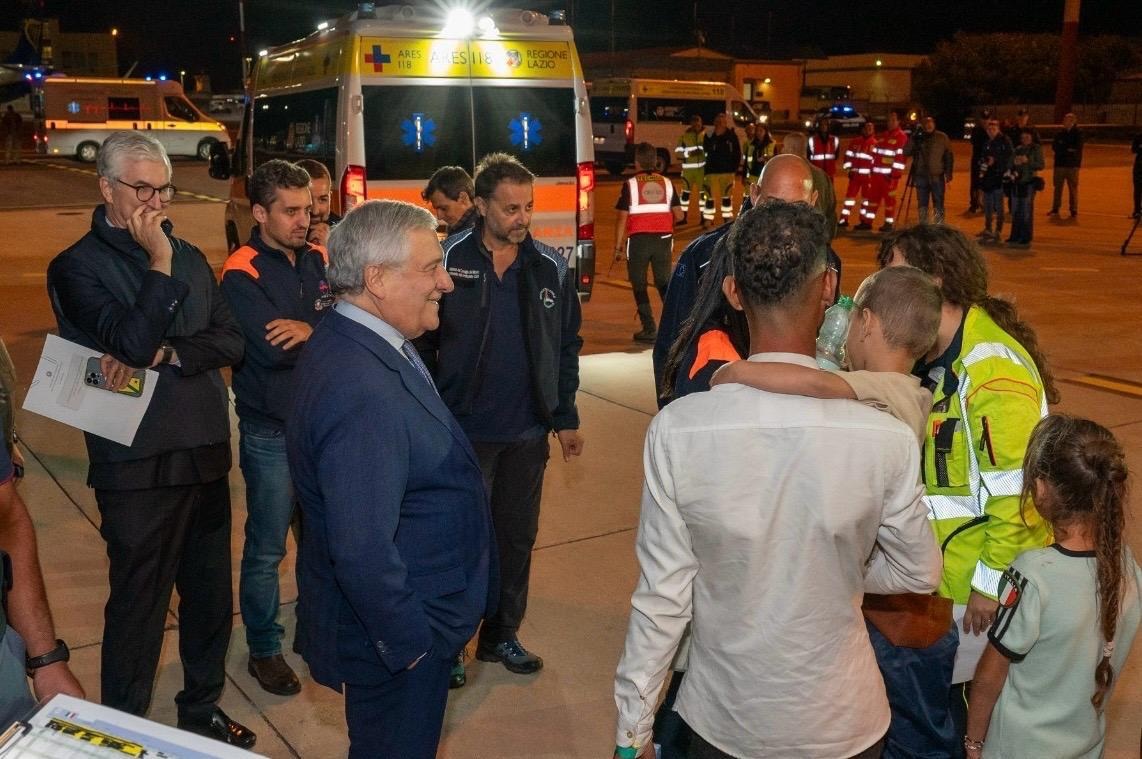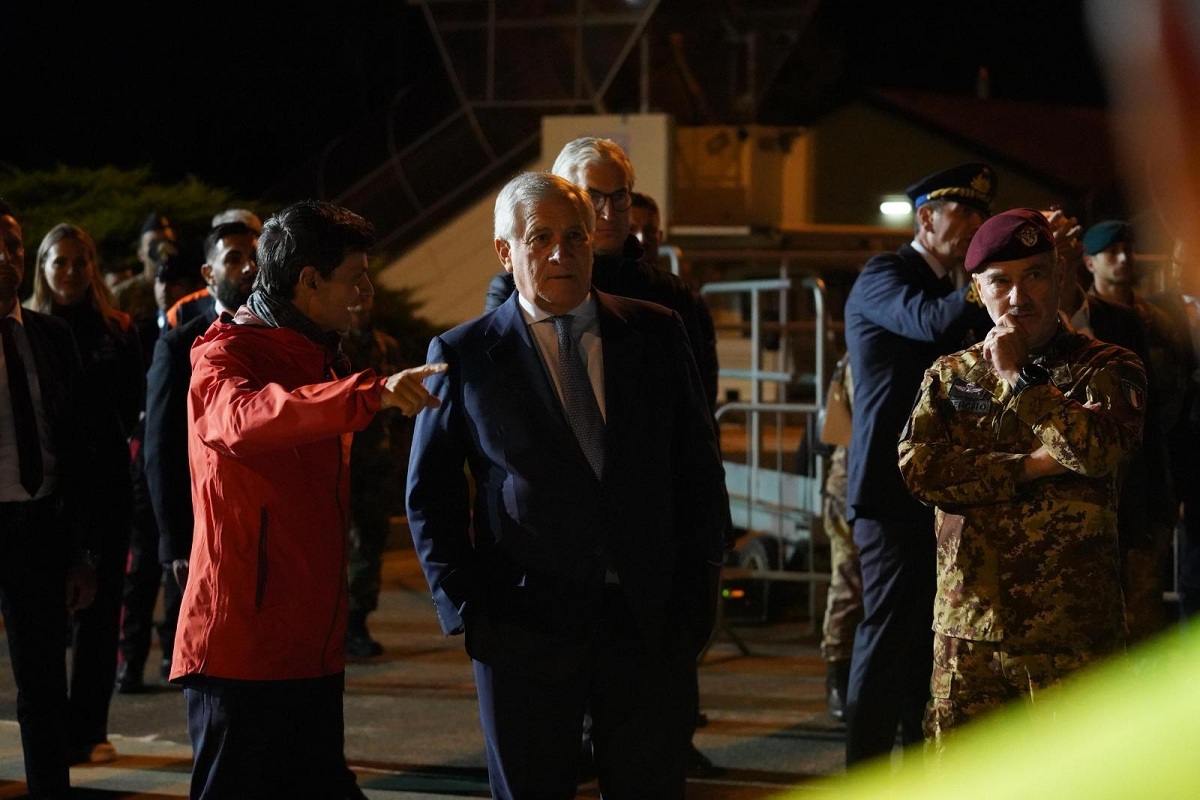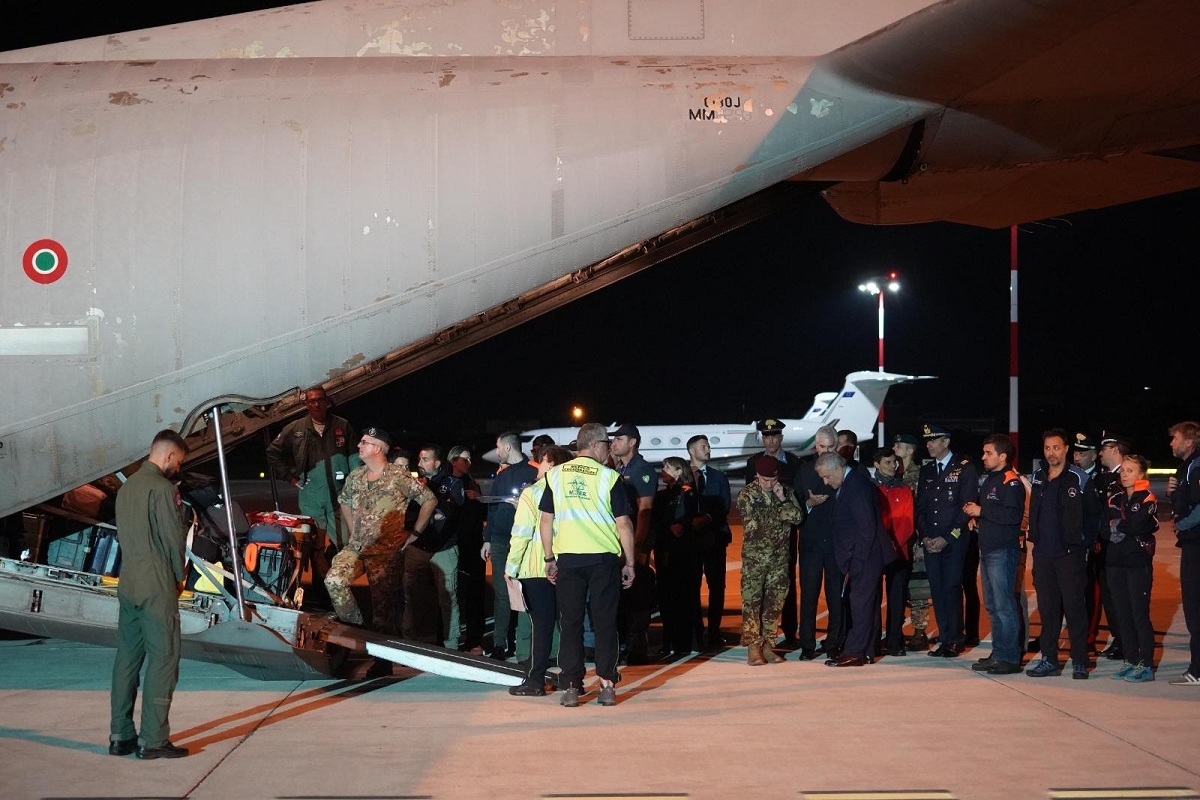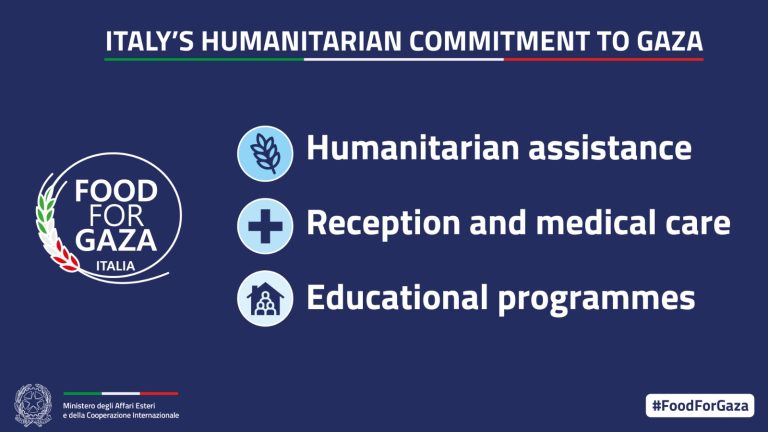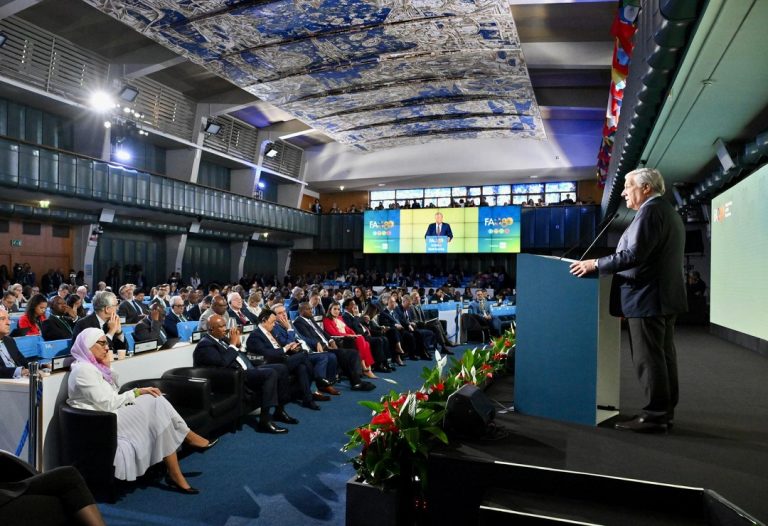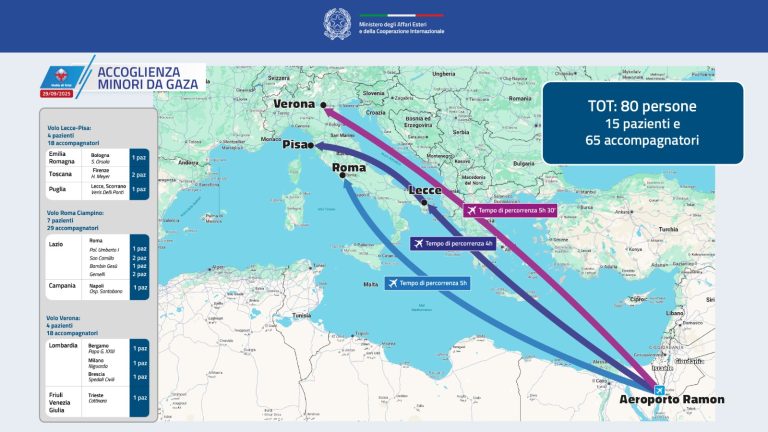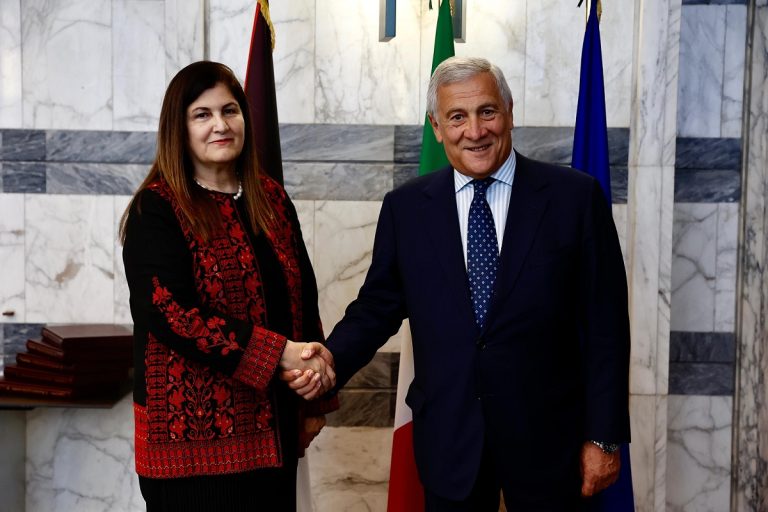Foreign Minister Tajani launched the “Food for Gaza” initiative on March 11, 2024, in a meeting in Rome with Qu Dongyu, Director-General of the UN Food and Agriculture Organization (FAO), Cindy McCain, Executive Director of the World Food Programme (WFP), and Xavier Castellanos, Deputy Secretary General of the International Federation of the Red Cross (IFRC).
The Food for Gaza initiative has the full support of Israel and the Palestinian National Authority, whose Foreign Ministers have identified it as a model to follow.
In recent months, the Council of Ministers extended the state of emergency for interventions in the Gaza Strip, increasing the financial contributions dedicated to the Food for Gaza project alone to approximately €40 million. This was also due to the new €10 million allocation to WHO and UNICEF to support hospitals, procure medicines, and support emergency medical and healthcare activities in the Gaza Strip.
The initiative consists of three components:
- Humanitarian aid
- Assistance and medical care
- Educational programs
HUMANITARIAN AID
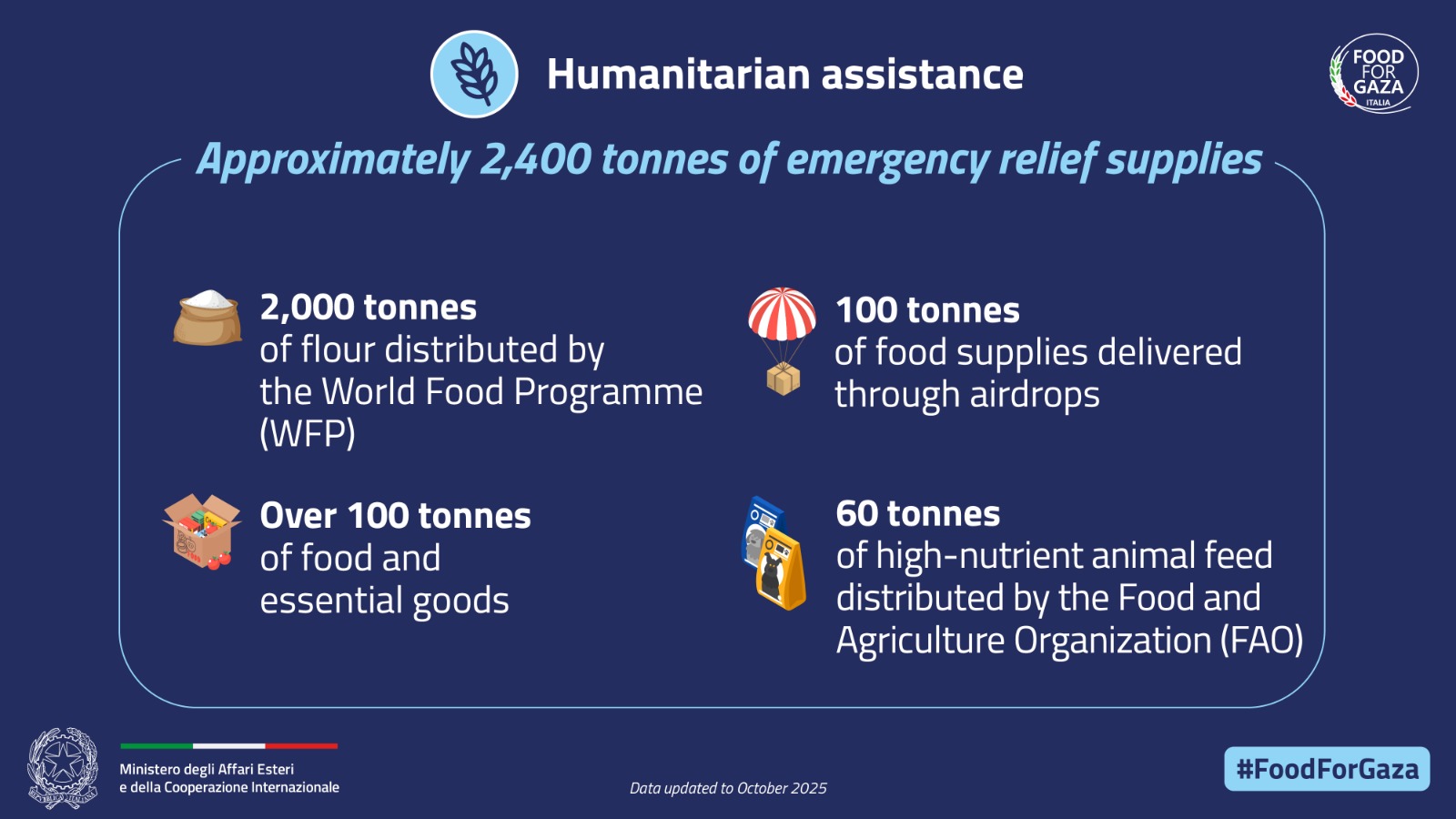
Thanks to the Food for Gaza initiative, Italy has delivered approximately 2,300 tons of food, medical, and basic relief supplies to the Gaza Strip. The aid has been channelled through the World Food Program and the International Red Cross, authoritative and impartial institutions trusted by both sides.
Among the largest operations carried out to date, the WFP has distributed 2,000 tons of flour. Four convoys departed from Jordan over a period of approximately three weeks between July and August, with the aim of assisting approximately one million Palestinians in the Gaza Strip.
Furthermore, with the crucial collaboration of the Ministry of Defence, airdrops were carried out to drop approximately 100 tons of food directly into Gaza.
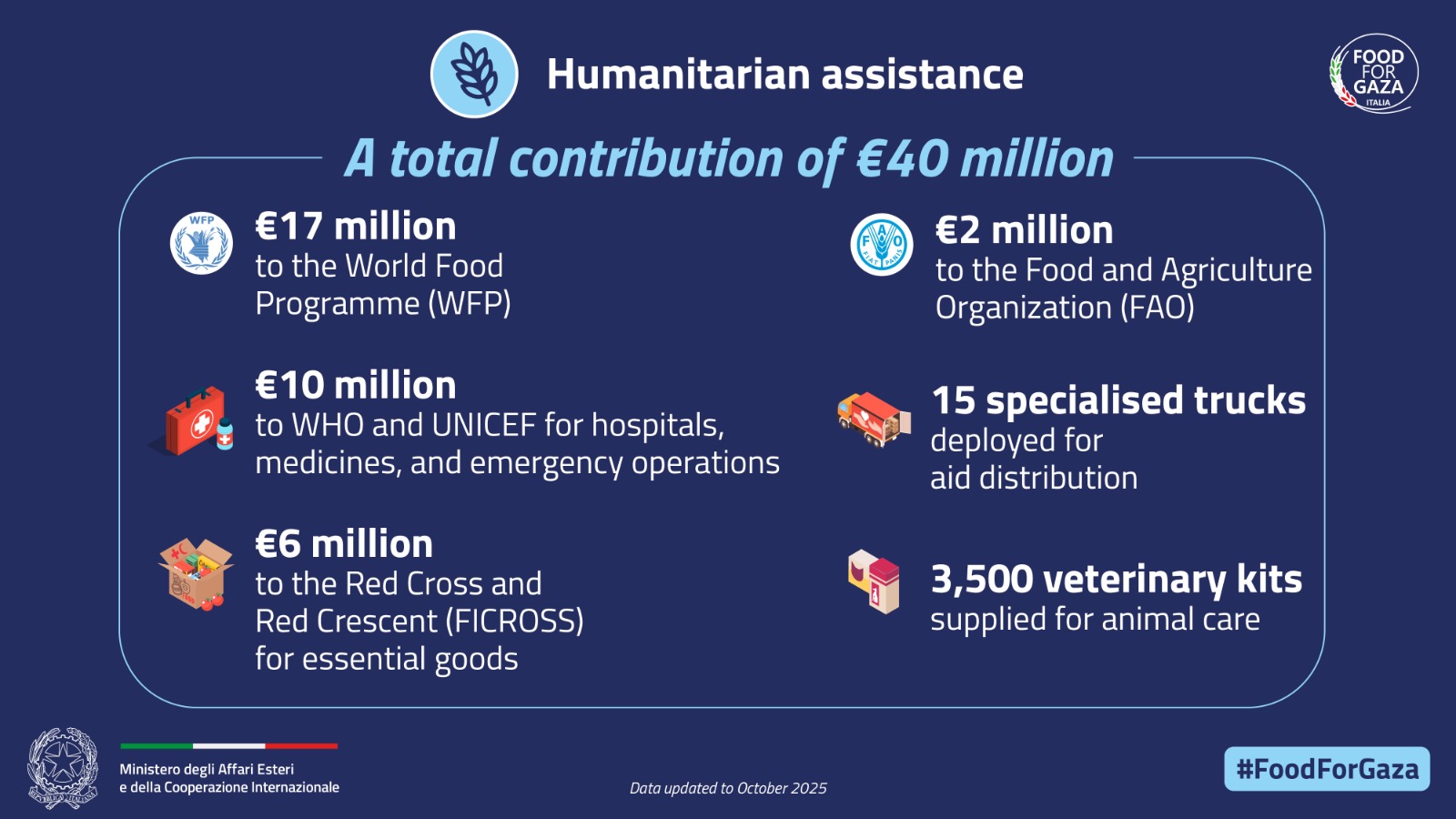
As part of the humanitarian aid, 15 special trucks were delivered to WFP in February 2025, later modified to serve as “forklifts” for the distribution of aid within the Gaza Strip. Furthermore, 15 tons of humanitarian aid, including basic necessities, such as blankets and hygiene supplies, were delivered along with the vehicles, intended to assist approximately 1,200 people.
In August 2025, 60 tons of nutrient-dense animal feed were also released into Gaza. This initiative was carried out in collaboration with the FAO. The first distribution cycle involves the provision of two bags (100 kg) to each shepherd with at least one head of cattle; the goal is to reach 200 verified beneficiaries. 3,500 veterinary kits for animal care are also expected to enter Gaza.
ASSISTANCE AND MEDICAL CARE
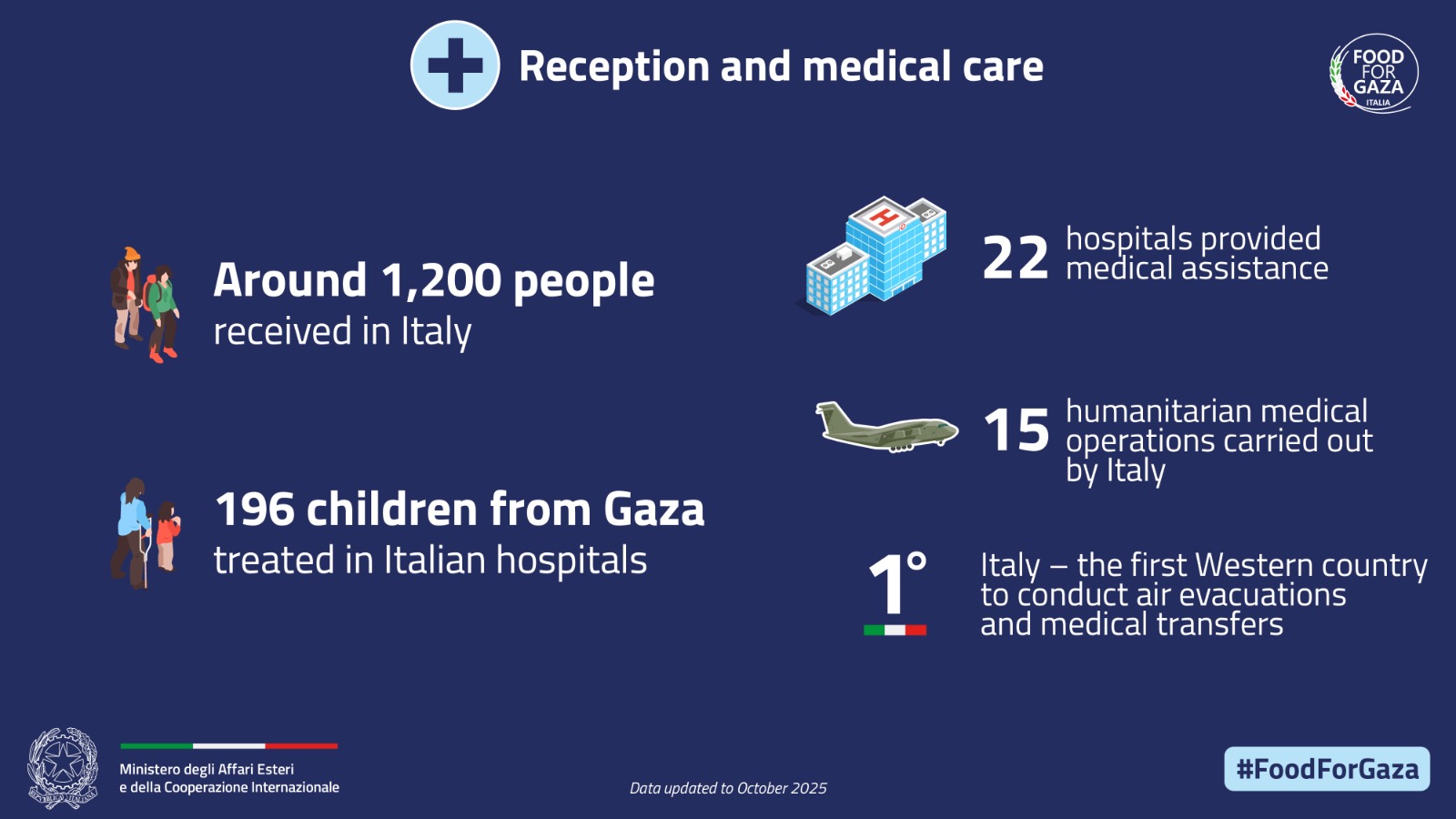
Italy has given priority to the reception of sick Palestinian children. To date, the medical operations have made it possible to admit 196 children from Gaza to healthcare facilities in Italy, together with their families, for a total of 658 people.
The latest group of Palestinian minors arrived in Italy from Gaza on 29 September on three humanitarian flights, landing in Rome, Lecce/Pisa, and Verona. The operation involved 15 patients, all suffering from severe congenital conditions or severe injuries and amputations, together with 65 carers – 80 people in total.
These operations were made possible thanks to coordination led by the Prime Minister’s Office, in cooperation with the Ministry of Foreign Affairs and International Cooperation, the Ministry of Defence, the Ministry of the Interior, and the Civil Protection Department, and in collaboration with the World Health Organization and the European Civil Protection Mechanism. The intensive diplomatic work enabling these operations involved the Italian Embassies in Tel Aviv and Cairo, as well as the Consulate General in Jerusalem.
The hospitals that made themselves available include: Sant’Orsola Hospital in Bologna, Meyer Children’s Hospital in Florence, Veris Delli Ponti Hospital in Scorrano (Lecce), Bambino Gesù, Gemelli, San Camillo and Policlinico Umberto I in Rome, Santobono Hospital in Naples, Papa Giovanni XXIII Hospital in Bergamo, ASST Niguarda in Milan, Spedali Civili in Brescia, and Cattinara Hospital in Trieste. In the past, other healthcare facilities had also received Palestinian patients, including Regina Margherita Hospital in Turin, IRCCS San Raffaele, the National Cancer Institute, Vittore Buzzi Children’s Hospital and Policlinico in Milan, San Gerardo Hospital in Monza, the University Hospital Trusts of Padua and Verona, Gaslini Institute in Genoa, Apuano Paediatric Hospital in Massa, Cisanello Hospital in Pisa, Maggiore Hospital in Bologna, Policlinico in Modena, Perugia Hospital Trust, and Catania Hospital.
Italy thus confirms its role as the leading Western country – ahead of all other European States combined – in organising the transfer of patients from Gaza to specialised hospitals.
EDUCATIONAL PROGRAMS
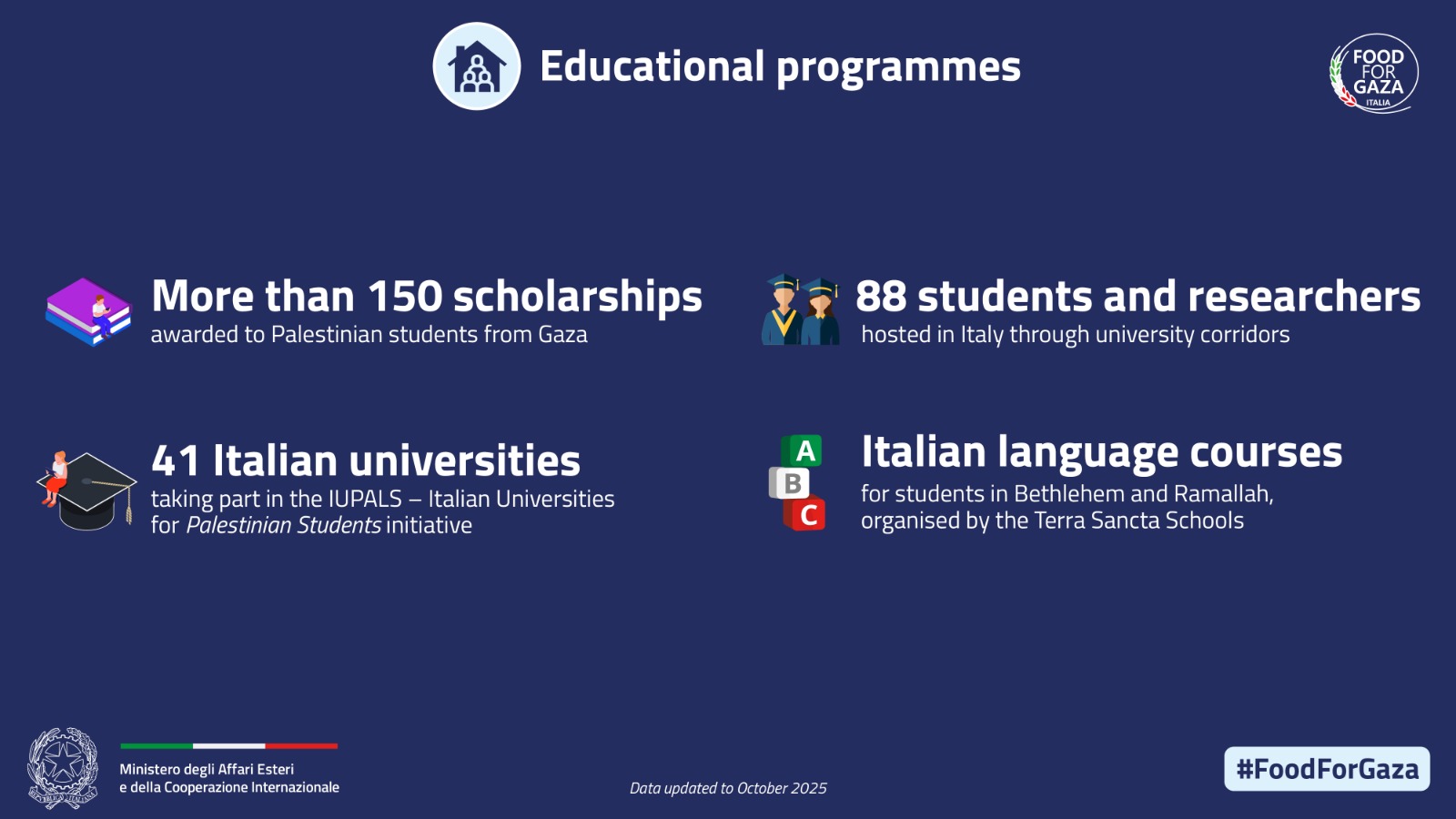
The Italian Foreign Ministry, in cooperation with the Ministry of University and Research and the Conference of Italian University Rectors (CRUI), has launched the “University Corridors” initiative to enable young Palestinian scholarship holders enrolled at Italian universities to leave their country and continue their studies in Italy.
So far, 88 students and researchers have arrived in Italy as part of reception operations carried out in October, coordinated by the Crisis Unit of the Italian Foreign Ministry. The transfers were made possible thanks to special flights operated by the Guardia di Finanza (Italian Financial Police), organised by the Civil Protection Department and the European Civil Protection Mechanism, with the contribution of CRUI.
Currently, thirty universities are taking part in the initiative: the Universities of Bari, Bergamo, Brescia, Camerino, Catania, Ferrara, L’Aquila, Milano Bicocca, Milan (La Statale), Modena and Reggio Emilia, Naples (Federico II), Naples (Parthenope), Padua, Parma, Pavia, Perugia (University for Foreigners and University of Studies), Piemonte Orientale, Pisa, Rome (La Sapienza), Rome (Tor Vergata), Siena, Turin (Polytechnic and University of Studies), Trieste, Tuscia, Udine, Urbino, Varese-Insubria, and Venice (Ca’ Foscari).
This operation is the result of extensive diplomatic efforts involving the authorities of Israel and Jordan, through the work of the Embassies of Italy in Tel Aviv and Amman, as well as the Consulate General in Jerusalem. These efforts made it possible to establish a humanitarian and academic channel for students admitted to Italian universities for the newly opened academic year. Work is ongoing to facilitate the arrival of additional scholarship holders in Italy in the near future.
More than 150 scholarships have been awarded to Palestinian students from Gaza, through both regular calls of the Italian university system and the “Italian Universities for Palestinian Students” (IUPALS) project, which involves 41 Italian universities. An additional 50 scholarships have been granted to Palestinian students residing in the West Bank.
Thanks to coopeation with the Terra Sancta Schools and the John Paul II Foundation, Italy is also organising Italian language courses in Bethlehem and Ramallah.

